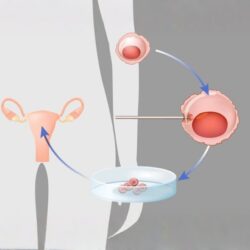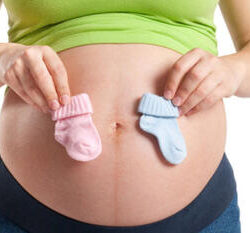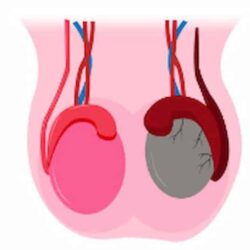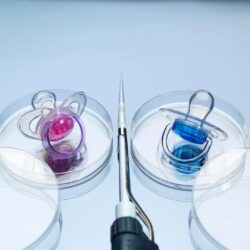Does IVF Treatment Increase the Risk of Breast Cancer? Scientific Facts
In Vitro Fertilization (IVF) treatment is a beacon of hope for thousands of couples wishing to have a child. However, due to the hormone medications used in the treatment, patients often have important questions such as: “Does IVF increase the risk of Breast Cancer?” We have compiled the source of this concern and the current scientific data’s perspective on the matter for you.
What Do Scientific Studies Say?
The potential relationship between IVF treatment and the risk of Breast Cancer has been one of the most intensely researched topics by scientists and the medical community for years. Although it is theoretically thought that high doses of hormones like estrogen and progesterone used during the treatment could increase the risk, the results of large and comprehensive studies generally show no clear causal relationship.
- Large-Scale Follow-up Studies: Extensive and long-term follow-up studies (some lasting up to 30 years) have been conducted to examine the link between cancer and IVF treatment. The vast majority of these studies have not detected a significant increase in this risk among women undergoing IVF treatment compared to the general population.
- Infertility and Cancer Risk: Some experts point out that infertility itself (along with factors such as never having given birth or having the first birth at an advanced age) can be a known risk factor for the breast. Therefore, it is important to distinguish whether cancer cases observed in infertile women are directly caused by the treatment or by other underlying risk factors associated with infertility.
Important Note: There are concerns regarding the possibility that hormone medications used in infertility treatments may cause cancer; however, the most comprehensive and long-running studies conducted to date show that these treatments do not significantly increase the risk of Breast Cancer.
What Might Be the Real Factors Leading to Increased Risk?
When a case of cancer is observed in women who have undergone IVF treatment, it is a more accurate approach to evaluate the following known risk factors rather than directly attributing the condition to the treatment:
- Age: Advanced age is generally one of the most important factors that increases the risk of Breast Cancer. The fact that the average age of women seeking IVF treatment is also high may influence this situation.
- Nulliparity (Never Having Given Birth): Never having given birth (nulliparity) or having the first birth at an advanced age are known risk factors for cancer. A large proportion of women undergoing IVF treatment fall into this category.
- Family History: The risk for women with a family history of cancer is already high, independently of the treatment they receive.
Conclusion and Recommendations
The vast majority of current and reliable medical studies do not present definitive proof that IVF treatment increases the risk of Breast Cancer.
However, this does not mean we should be careless. Whether or not you have undergone IVF treatment, it is of great importance to follow general cancer screening and prevention recommendations:
- Regular Doctor Check-ups: Stay in touch with your gynecology specialist and, if necessary, your oncology specialist.
- Breast Examination: Do not neglect to perform monthly self-examinations of your breasts and undergo regular doctor examinations.
- Mammography Screenings: Have your mammography screenings done at the frequency recommended by your doctor, appropriate for your age.
- Healthy Lifestyle: Make general health precautions such as healthy eating, maintaining an ideal weight, and regular exercise a part of your life.
If you have concerns about the treatment process, be sure to talk to your doctor to get the most accurate and personalized information. Making informed decisions and having regular follow-ups are the most important steps to protect your health.
Scientific Facts
In Vitro Fertilization (IVF) treatment is a beacon of hope for thousands of couples wishing to have a child. However, due to the hormone medications used in the treatment, patients often have important questions such as: “Does IVF increase the risk of Breast Cancer?” We have compiled the source of this concern and the current scientific data’s perspective on the matter for you.
What Do Scientific Studies Say?
The potential relationship between IVF treatment and the risk of Breast Cancer has been one of the most intensely researched topics by scientists and the medical community for years. Although it is theoretically thought that high doses of hormones like estrogen and progesterone used during the treatment could increase the risk, the results of large and comprehensive studies generally show no clear causal relationship.
- Large-Scale Follow-up Studies: Extensive and long-term follow-up studies (some lasting up to 30 years) have been conducted to examine the link between cancer and IVF treatment. The vast majority of these studies have not detected a significant increase in this risk among women undergoing IVF treatment compared to the general population.
- Infertility and Cancer Risk: Some experts point out that infertility itself (along with factors such as never having given birth or having the first birth at an advanced age) can be a known risk factor for the breast. Therefore, it is important to distinguish whether cancer cases observed in infertile women are directly caused by the treatment or by other underlying risk factors associated with infertility.
Important Note: There are concerns regarding the possibility that hormone medications used in infertility treatments may cause cancer; however, the most comprehensive and long-running studies conducted to date show that these treatments do not significantly increase the risk of Breast Cancer.
What Might Be the Real Factors Leading to Increased Risk?
When a case of cancer is observed in women who have undergone IVF treatment, it is a more accurate approach to evaluate the following known risk factors rather than directly attributing the condition to the treatment:
- Age: Advanced age is generally one of the most important factors that increases the risk of Breast Cancer. The fact that the average age of women seeking IVF treatment is also high may influence this situation.
- Nulliparity (Never Having Given Birth): Never having given birth (nulliparity) or having the first birth at an advanced age are known risk factors for cancer. A large proportion of women undergoing IVF treatment fall into this category.
- Family History: The risk for women with a family history of cancer is already high, independently of the treatment they receive.
Conclusion and Recommendations
The vast majority of current and reliable medical studies do not present definitive proof that IVF treatment increases the risk of Breast Cancer.
However, this does not mean we should be careless. Whether or not you have undergone IVF treatment, it is of great importance to follow general cancer screening and prevention recommendations:
- Regular Doctor Check-ups: Stay in touch with your gynecology specialist and, if necessary, your oncology specialist.
- Breast Examination: Do not neglect to perform monthly self-examinations of your breasts and undergo regular doctor examinations.
- Mammography Screenings: Have your mammography screenings done at the frequency recommended by your doctor, appropriate for your age.
- Healthy Lifestyle: Make general health precautions such as healthy eating, maintaining an ideal weight, and regular exercise a part of your life.
If you have concerns about the treatment process, be sure to talk to your doctor to get the most accurate and personalized information. Making informed decisions and having regular follow-ups are the most important steps to protect your health.








